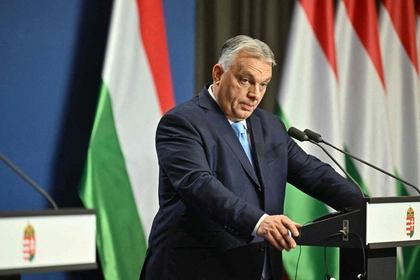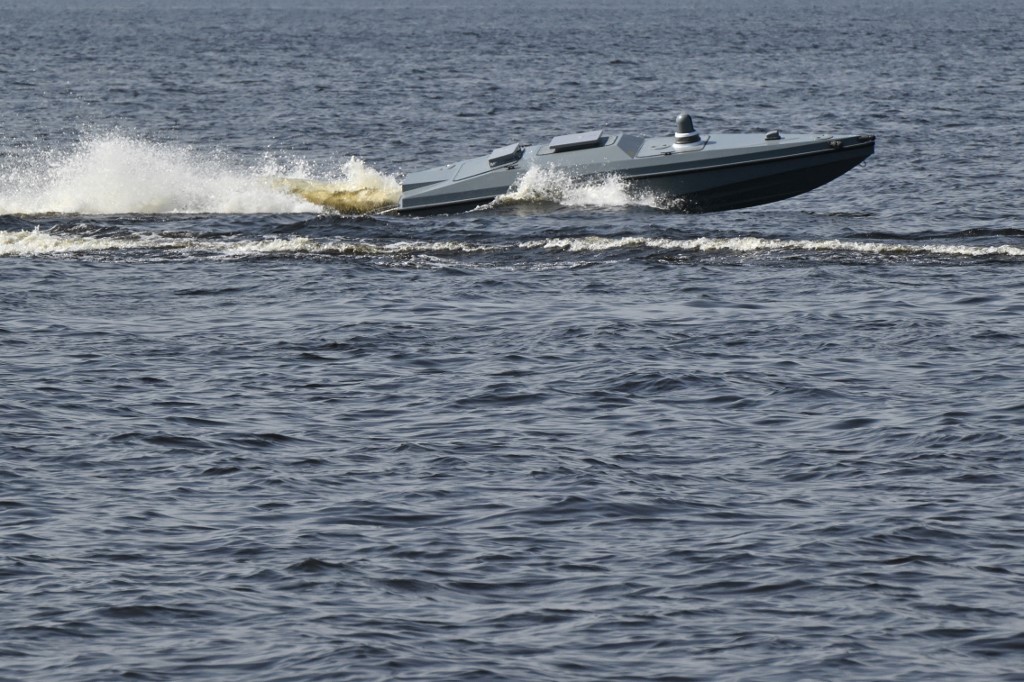Poland takes over the European Union’s rotating presidency from Hungary on Jan. 1, a change at the helm likely to be met with a sigh of relief in many EU quarters.
Warsaw is expected to bring a more conciliatory approach than its predecessor to a role that -- although lacking in real power -- is seen as a key driver of the bloc’s action.
JOIN US ON TELEGRAM
Follow our coverage of the war on the @Kyivpost_official.
Traditionally hawkish towards Russia, Poland has been among Ukraine’s loudest backers since the 2022 invasion, while Hungary -- as Moscow’s closest EU ally -- has resisted support for Kyiv.
“Everyone is looking forward to having a fresh start,” said a diplomat speaking on condition of anonymity.
Long bound together by strong cultural and diplomatic ties, Poland and Hungary have seen their European fortunes diverge dramatically in recent years.
Under Hungary’s nationalist prime minister, Viktor Orban, Budapest has regularly found itself at loggerheads with Brussels, becoming something of a black sheep.
Its six-month presidency was awaited with dread and later proved to be “quite irritating” to other EU governments, said Guntram Wolff, a senior fellow at Brussels-based think tank Bruegel.
While each EU country fights tooth-and-nail for its own interests, when they assume the EU presidency they are meant to put their politics aside to take on a seemingly more neutral role.
Orban used the platform to openly pursue his own diplomatic agenda.

Hungary Officially Denied a Billion Euros of EU funds
He began by travelling to Russia for talks with President Vladimir Putin as part of an unapproved Ukraine “peace mission” that also saw him visit Kyiv and Beijing. That sparked fury among fellow EU leaders.
Although the EU likens the role of the presidency to “hosting a dinner” among the bloc’s members, the job is not without punch.
The country in charge gets to chair meetings of the European Council, which comprises the governments of the 27 EU states, steer the agenda and steward negotiations.
Hungary managed most EU internal matters in conventional fashion. But it stalled the bloc’s action on foreign policy, including loans and military assistance for Ukraine.
- Security focus -
Polish Prime Minister Donald Tusk is likely to oversee a return to the more traditional tasks of consensus building and compromise brokering, said Wolff.
The former EU chief has ended the fraught relationship between Brussels and Poland’s previous nationalist government -- boosting the country’s already growing clout.
Since it joined the EU in 2004, Poland’s economy has almost tripled in size, according to the Danish Institute for International Studies.
It currently accounts for more than four percent of the EU’s total output.
Only Germany, France, Italy, Spain and the Netherlands contribute more.
Poland currently tops NATO’s spending ranking relative to the size of its economy, with more than four percent of its GDP devoted to defense.
This will be reflected in the goals it pursues over the next semester.
The bloc’s fifth largest country in terms of population has said it wants to use the presidency to “strengthen its position as one of the most important” EU states.
Its representative to the EU, Agnieszka Bartol, said “security” would be its main focus.
While this includes economic, energy and food security, defense is top of the list.
“We cannot ignore the international situation,” Bartol said.
“We are in times of extreme challenges. There is a war just next to us”.
Warsaw says ramping up support for Ukraine, enhancing sanctions against Russia and boosting Europe’s defense industry are among its priorities.
That’s “not going to be an easy task” however, cautioned the diplomatic source.
He noted that the EU’s security and foreign policy decisions require unanimity, and Hungary and Slovakia were not likely to concur.
Others expressed concerns that Poland’s presidential election, scheduled for May, might see domestic politics muddy Warsaw’s neutrality on the EU stage.
“They will always position themselves in light of the presidential election,” said a senior diplomat.
But “that’s part of the game”, said the first diplomatic source.
Apart from security, no major decisions are expected over the next six months. A new European Commission -- which plays a central role in preparing EU legislation -- has only just been appointed.
You can also highlight the text and press Ctrl + Enter






